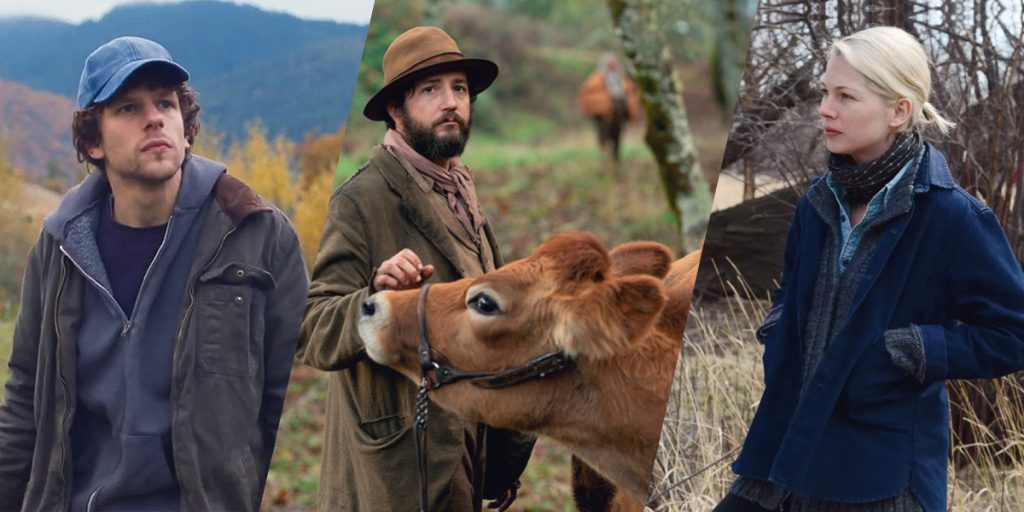It’s time to look at the impressive filmography of one of the best filmmakers working today. Here are all of Kelly Reichardt‘s films, ranked from worst to best.
With most of the major film festivals over and the last remaining Oscar contenders still months away, we’ve begun to get a clearer picture as to what the 2020 Oscars will look like. Mank, Nomadland, and The Trial of the Chicago 7 appear to be frontrunners for the major awards while Ma Rainey’s Black Bottom, One Night in Miami, and Soul continue to gain momentum. But with all the prestigious pictures being released at once, awards voters tend to overlook films released earlier in the year. What about a screenplay nomination for Palm Springs? Could Emma. pick up a few technical nominations? These films often get overlooked in favor of their flashier end of the year competitors who have the luxury of a large advertising budget and a dedicated team of campaigners, leaving deserving films in the dust.
Chief among these early release films deserving of consideration is Kelly Reichardt ’s seventh feature film First Cow that, while released with the help of A24 (whose only other major release, Boys State, should receive ample attention in the documentary race) has quickly fallen out of the conversation and is now seen as a distant long shot in many of the categories it would deserve to receive a nomination for, or even win.
Unfortunately, this is par for the course when it comes to Reichardt films, despite each of her features receiving critical praise and her unquestioned status as one of the foremost American independent filmmakers working today, she has yet to receive the same love from the awards circuit. Below is a ranking of her 7 theatrically released films and why each deserves to be considered a modern classic.
7. RIVER OF GRASS
(1994)
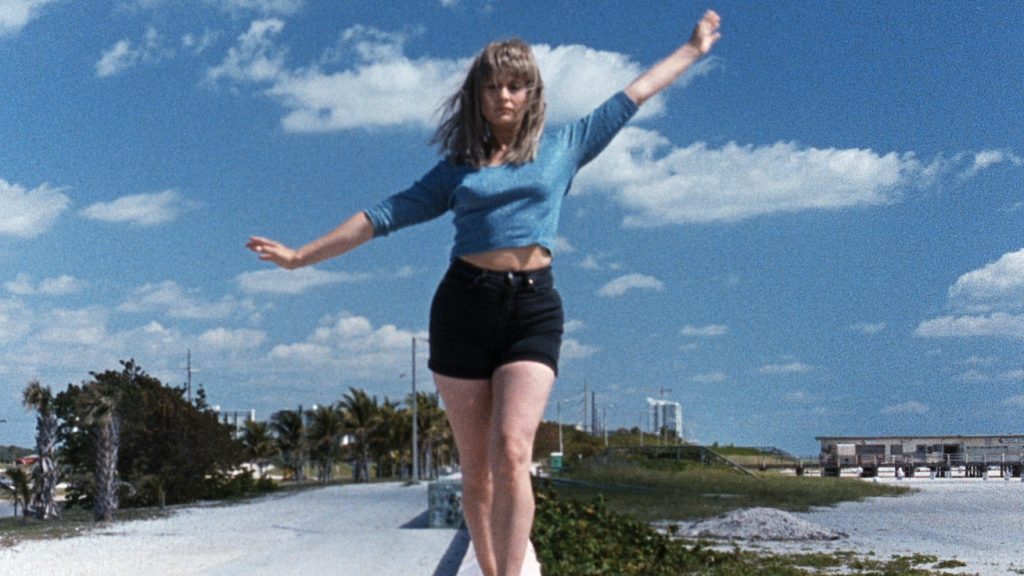
While Reichardt has never made a bad film, her debut feature stands out as both a stylistic anomaly and the weakest of her filmography. Her only film not set in Oregon or Montana, River of Grass follows Cozy (Lisa Donaldson) and Lee (Larry Fessenden), two lonely souls who attempt to flee southern Florida after they accidentally kill someone. Except the catch is that their victim is not only alive but unharmed and the duo is not in trouble. Released the same year as both Quentin Tarantino’s Pulp Fiction and Kevin Smith’s Clerks, it’s baffling that Reichardt did not experience the same degree of success that Smith and Tarantino received as all three were cornerstones of the 90’s indie cinema boom. Despite competing for the Grand Jury prize at Sundance and receiving three Indie Spirit award nominations, River of Grass fell into obscurity after its release, maintaining a small cult following until its re-release in 2016 where it gained a new appreciation as one of the best independent films of the 1990s.
6. WENDY AND LUCY
(2008)
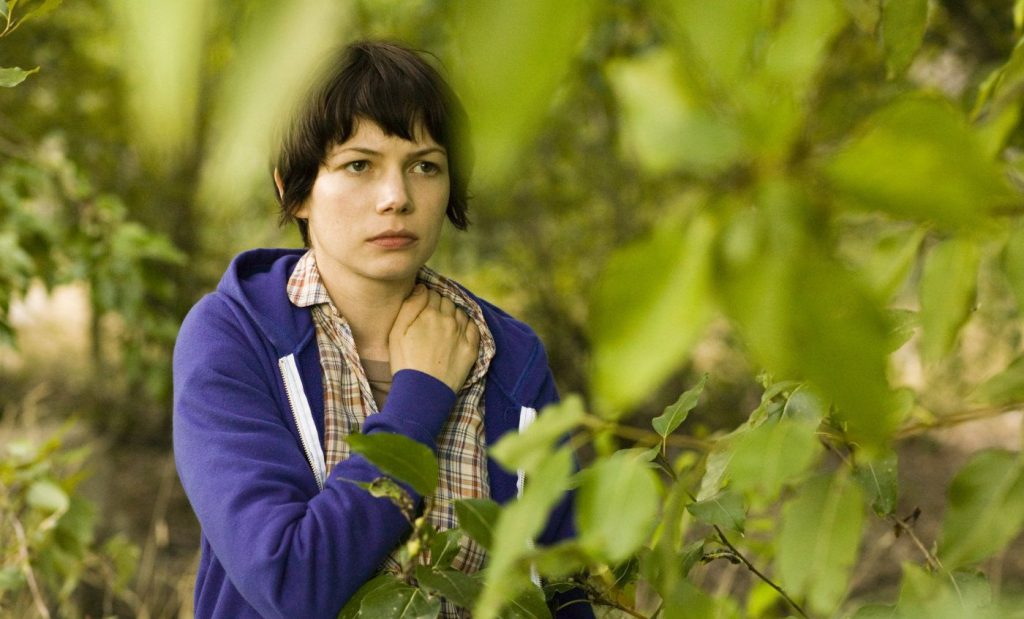
The first of three collaborations with Michelle Williams, Reichardt’s third feature is a profound lesson in empathy and perhaps the clearest encapsulation of her style. Following the destitute Wendy (Williams) and her dog Lucy as they scour the Pacific Northwest in search of work following the Great Recession; Reichardt takes the minimalism that defines her filmography to the extreme with a bare-bones script and a breezy 80-minute running time. We see the beginnings of her fascination with the inner lives of working-class citizens and one’s relationship to their environment as Wendy wanders through sleepy rural suburbs and struggling chain stores. Williams’s performance as Wendy is a standout in a filmography of subtle yet layered performances that communicates so much with a simple glance or phrase. Her story heartbreakingly echoes the tragedies that many Americans experienced in the wake of the housing market crash, giving each of the small victories and setbacks she encounters painful relevance. While possibly too slow for newcomers to Reichardt’s style, Wendy and Lucy remains both a powerful character study and one of the best dog movies of the 2000s.
5. MEEK’S CUTOFF
(2010)
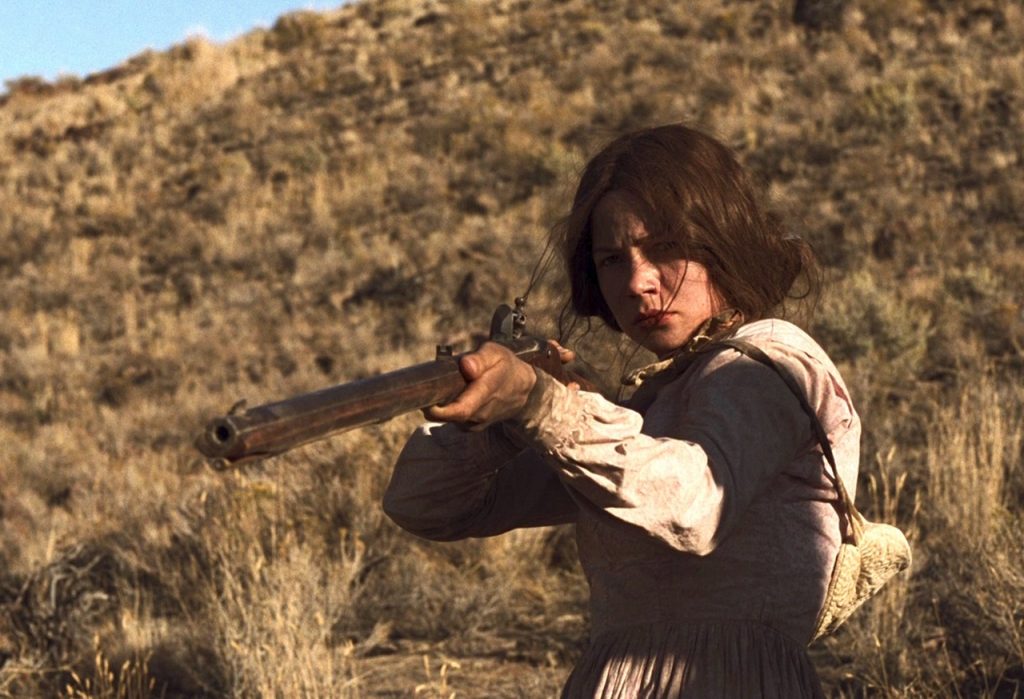
Two years after the critical success of Wendy and Lucy, Reichardt and Williams collaborated again on the western Meek’s Cutoff, her first (and to date) only outing outside the drama genre and her most allegorical to date. It follows a band of pioneers on the Oregon Trail (Williams, Paul Dano, Zoe Kazan, and others) who become increasingly concerned that their guide Meek (Bruce Greenwood) is not as sure in his navigational skills as he claims to be. What follows is a bleak depiction of a social order gradually falling apart while desperately clinging to a facade of control. The power dynamics between the women, husbands, and Meek is never explicitly explored but comes across through the subtlety that gave Wendy and Lucy it’s emotional impact, it’s a clear example of Reichardt’s technique of hiding most of the substance under the surface and letting the audience look for it themselves. The story invites numerous interpretations, most notably from Reichardt herself who stated the similarities between Meek’s false guidance of the pioneers with George W Bush’s actions in the middle east following the terrorist attacks of 9/11 were intentional. In that way Meek’s Cutoff is Reichardt’s first experiment with political themes in her films, while Wendy and Lucy alluded to the 2008 stock market crash in vague terms, her future projects would tackle topical issues directly while keeping her signature styles and themes intact, an impressive feat that sets her apart from her contemporaries.
4. OLD JOY
(2006)
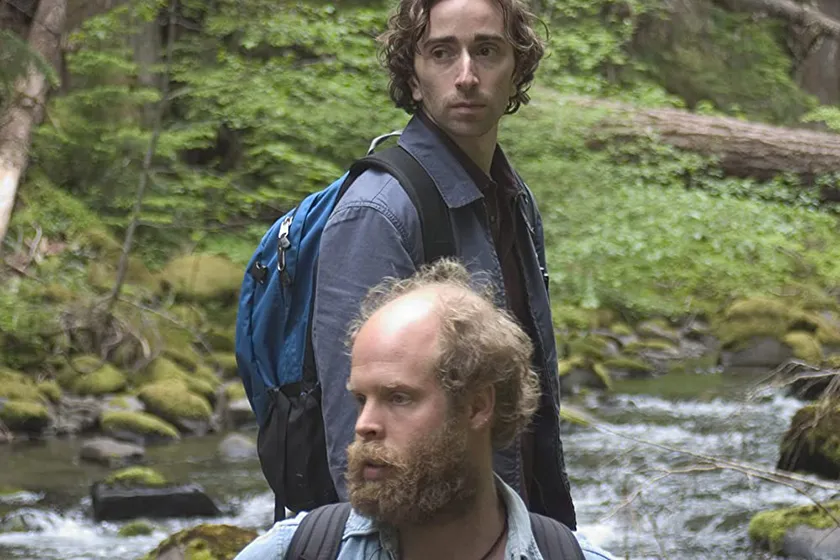
Despite the attention River of Grass received upon its release, Reichardt struggled to find her next project and spent the next 12 years making short films (many of which criticized the Bush administration in a similar way to Meek’s Cutoff) until she stumbled upon the titular short story by Jonathan Raymond which would serve as the base for her second feature film. Shot on a shoestring budget and using readily available locations around the Portland area, Old Joy tells the story of Mark (Daniel London) and Kurt (Will Oldham), two childhood friends that reunite for a camping trip in the cascade mountains in an attempt to rekindle their friendship. It is here that Reichardt’s talent for interpersonal relationships shines, consisting almost entirely of conversations between the two friends, Reichardt explores post 9/11 anxiety, the gradual disintegration of friendship, and traditional definitions of masculinity in a breezy 76 minutes. Her screenplay delicately weaves its way through an entire history between the two friends while keeping the realities of the present painfully close, leading to an ending that is inevitable but heart-wrenching. This makes it the best starting point for Reichardt’s work, as it introduces the viewer to her minimalist style and recurring themes quickly and efficiently which leaves a lasting impact.
3. NIGHT MOVES
(2013)
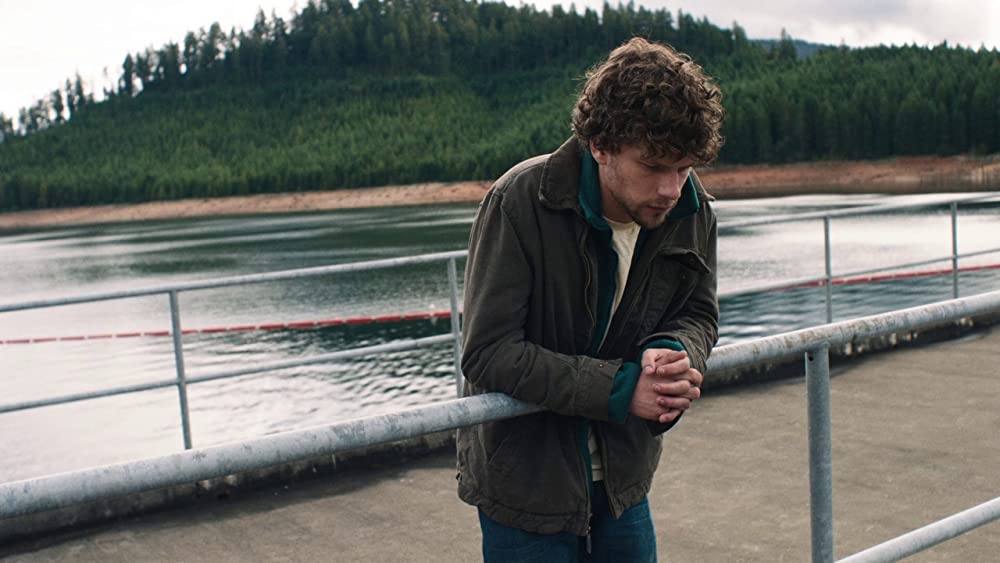
Criminally overlooked in Reichardt’s filmography is her 2013 slow-burn thriller Night Moves, which follows three eco-terrorists (Dakota Fanning, Jesse Eisenberg, and Peter Sarsgaard) during the planning, execution, and fallout of an attack on a local dam. Taking a much more methodical approach than is usual for a Reichardt film, the narrative is laser-focused on the three protagonists and their relationships and responses to violence as they grapple with their clashing personal beliefs. The natural landscapes of Oregon that brim with possibilities in her other works become claustrophobic and foreboding through dim cinematography by Christopher Blauvelt (her regular collaborator since Meek’s Cutoff) and a screenplay whose subtext simmers with the threat of disaster in every exchange. It’s a stark change of pace compared to the meandering journeys of Old Joy and Meek’s Cutoff, but Reichardt proves more than capable of keeping the audience hooked right up to the gut-twisting climax and devastating conclusion that forces the audience to critically examine what they just experienced.
2. FIRST COW
(2019)
The pacific northwest, working-class citizens, the struggle for a better life, First Cow is a perfect encapsulation of everything that makes Reichardt great. Set in the 1820s in the Oregon territory, First Cow follows the travelers Cookie (John Magaro) and King Lu (Orion Lee) in their attempt to earn the funds needed to escape the struggling outpost they find themselves in. The events that follow focus less on the genesis of the American dream and instead examine the touching relationship between the two outsiders in a society that only values them for their product output, giving the tale a concerning relevance. In that way, First Cow is most similar to Meek’s Cutoff in its possibilities for interpretation relating to modern themes, something Reichardt does with grace and intelligence most directors lack. Her eye for natural imagery shines here as she and Blauvelt frame the Oregon expanse as both a land of possibility and a frustrating barrier to success. An impressive ensemble which also includes Toby Jones and René Auberjonois (in his final film role) fill out the supporting roles with their quirks and mannerisms that help fill out the eclectic mix of characters that populate the narrative. Its pacing combined with its two-hour runtime may be off-putting for some, but those who chose to watch will be rewarded with one of the best films of the year and a deserving awards contender that shouldn’t be overlooked.
1. CERTAIN WOMEN
(2016)
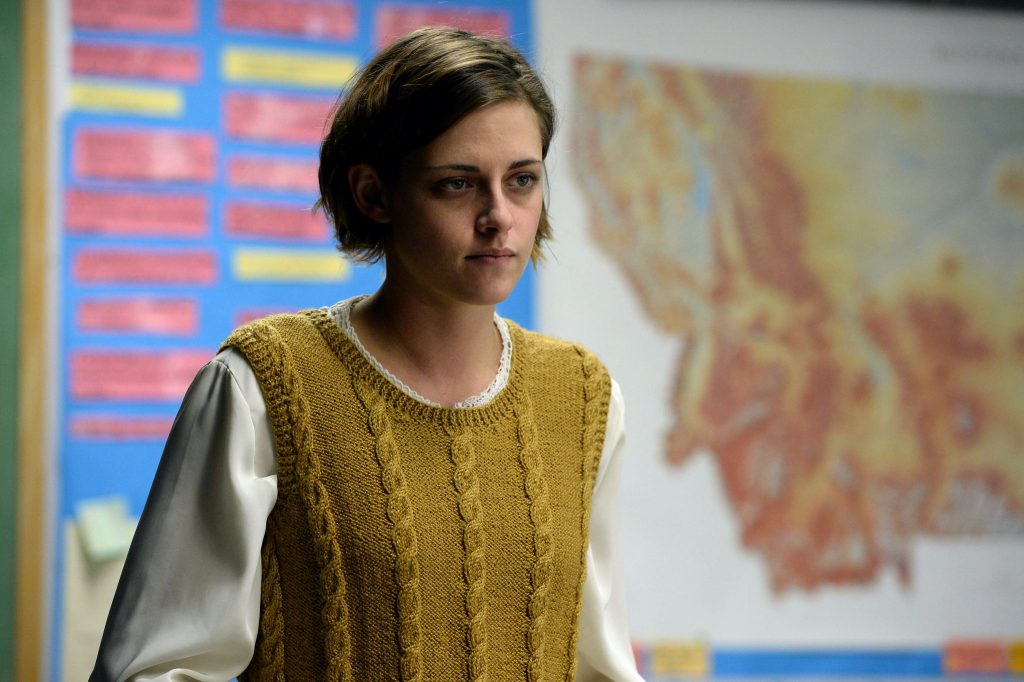
Here was arrive at Reichardt’s masterpiece of introspection and empathy. Her only film not set in the dense woods of Oregon, Certain Women is the story of four women (Laura Dern, Michelle Williams, Kristen Stewart, and Lilly Gladstone) whose paths vaguely intersect over a period of days in Montana as they each deal with personal trials. Adapted from three short stories by Malie Malloy, Reichardt’s script combines the subtext-rich dialogue of Night Moves with the quiet contemplation of Wendy and Lucy and Meek’s Cutoff to give every scene an emotional purpose no matter how brief or unimportant to the plot. The wide-open plains of northern Montana strike an interesting contrast to her other Oregon set stories, giving the emotions of the characters space to breathe not found in her other works, and lending a feeling of yearning as mountain and forests call out from the background. The feminist themes that played in the background of Meek’s Cutoff come out in full force as each of the women fight against misogyny both external and internal. It’s a beautiful film that showcases Reichardt’s talents for minimalist plots and richly layered characters and stands as one of the best films of the 2010s.

